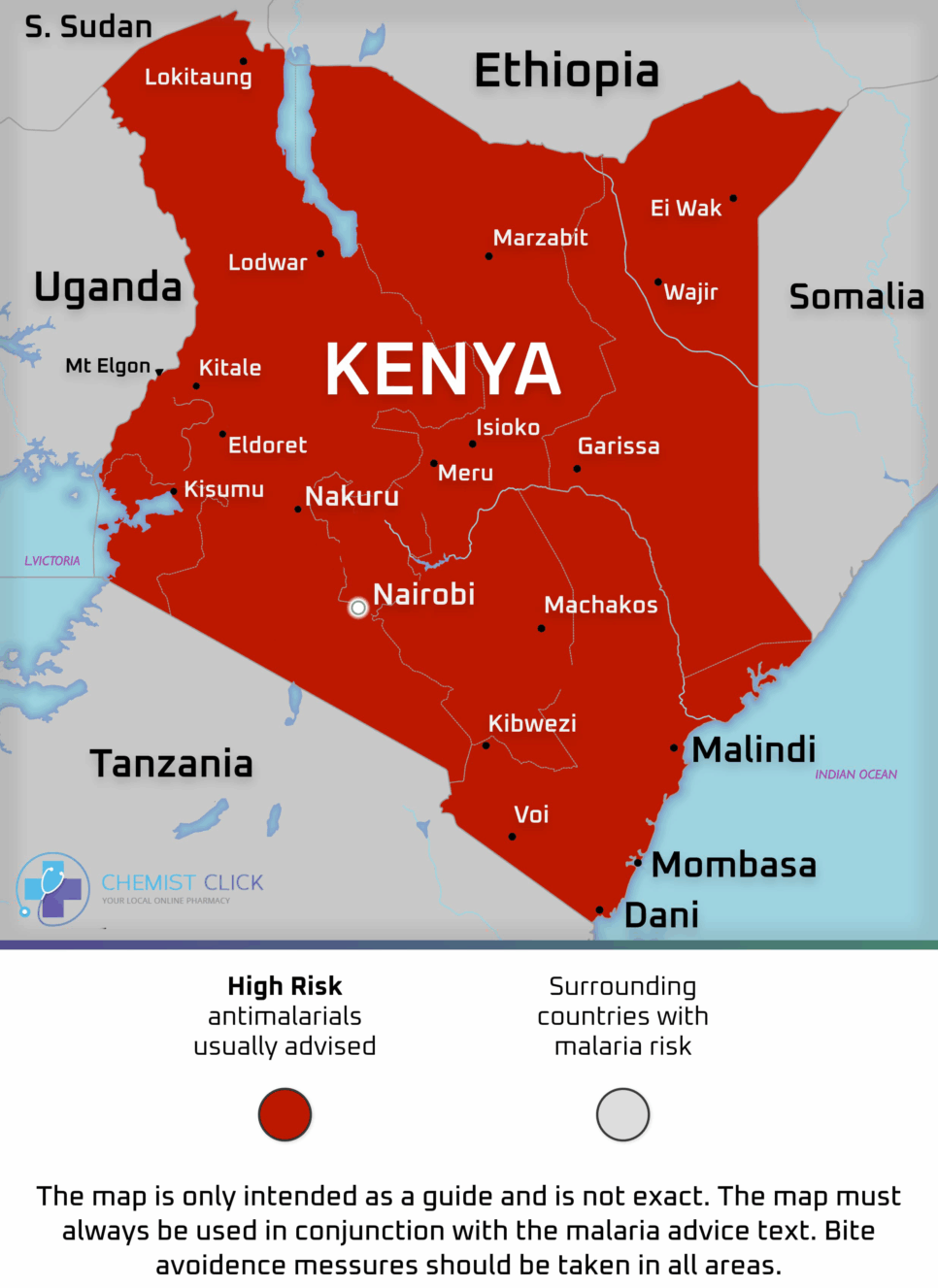Malaria is spread by mosquitoes that have been infected with the malaria parasite, also known as Plasmodium. When an infected mosquito bites a human, it’s possible to transfer the parasite to them. This can cause a host of undesirable symptoms, including fever and flu-like illness.
As malaria can also result in the loss of red blood cells, those infected may experience anaemia and jaundice (yellowing of the skin and eyes). There may be mental confusion, cardiac symptoms, and in extreme cases — death. Therefore, it’s essential to protect yourself with anti-malarial medication.
The same drugs that are used to treat malaria are used to prevent it. There are several pharmaceutical options available, depending on your personal situation. Here are the basics to let you decide which one is right for you. We review the cost in a separate section below.
Atovaquone/Proguanil (Malarone)
What is it? Atovaquone/Proguanil is the generic name for a combination antiparasitic drug. It is sold under the brand name Malarone as well, also known as generic Malarone.
Where is it effective? Worldwide.
How often is it taken? Once per day.
How many tablets are needed in total? One tablet for each day of your trip, plus nine extra tablets.
How is it dosed before and after travel? One day before travel and seven days after travel.
What are the possible side effects? Headache, nausea, diarrhoea, and upset stomach.
Can children take it? Yes, but it must be dosed in the pediatric formulation.
Who should not take it (contraindicated)? Should be avoided by pregnant and breastfeeding women, except in cases where the benefits are greater than the risks.
Who is it best for? This malaria pill might be best for you if you are concerned about side effects, as it’s generally well tolerated. Because it doesn’t need to be taken for long prior to travel, it’s ideal if you’re going to Kenya last minute.
Doxycycline
What is it? Doxycycline is an antibiotic belonging to the tetracycline class of drugs.
Where is it effective? Worldwide.
How often is it taken? Once per day.
How many tablets are needed in total? One tablet for each day of your trip, plus an additional 30 tablets.
How is it dosed before and after travel? One day before travel and 28 days after travel.
What are the possible side effects? Headache, nausea, diarrhoea, upset stomach, vomiting, and photosensitivity (skin more sensitive than usual to sunlight).
Can children take it? Only children over the age of 12 because it causes tooth staining in developing teeth.
Who should not take it (contraindicated)? Should not be taken by pregnant or breastfeeding women.
Who is it best for? Doxycycline is a good option for travelers on a budget. However, if you’re travelling with children under 12, you’ll have to obtain a different malaria tablet for them. You’ll also have to reduce your exposure to the sun, as doxycycline can cause photosensitivity. Doxycycline must be taken for nearly a month after travel, so this option is best for those who can remember to take a daily pill.
Mefloquine (Lariam)
What is it? Mefloquine is the generic name for an antiparasitic. It is sold under the brand name Lariam.
Where is it effective? Worldwide, but use with caution in Southeast Asia.
How often is it taken? Once per week.
How many tablets are needed in total? One tablet for each week you spend in a malaria zone, plus an additional seven tablets.
How is it dosed before and after travel? Three weeks before travel and four weeks after travel.
What are the possible side effects? Headache, nausea, diarrhoea, upset stomach, vomiting, anxiety, depression, and sleep disorders.
Can children take it? Yes, but the dose needs to be adjusted based on the child’s weight.
Who should not take it (contraindicated)? Should not be taken by pregnant women and by anyone with a history of seizures, epilepsy, or psychiatric disorders.
Who is it best for? Because of the possible psychiatric side effects, this malaria tablet is the least prescribed. However, if you are someone who often forgets to take medication, the weekly dosing may make this the right choice for you.




